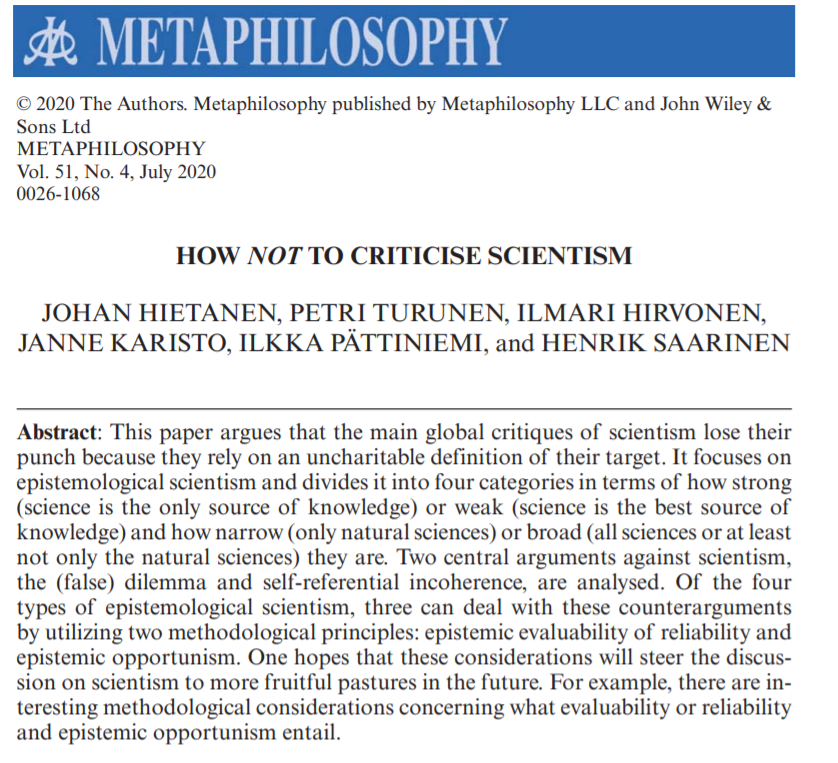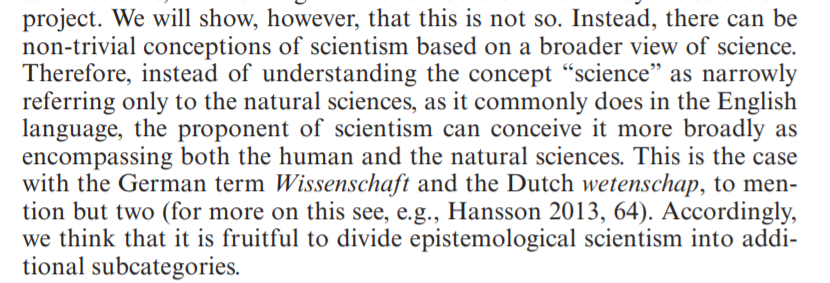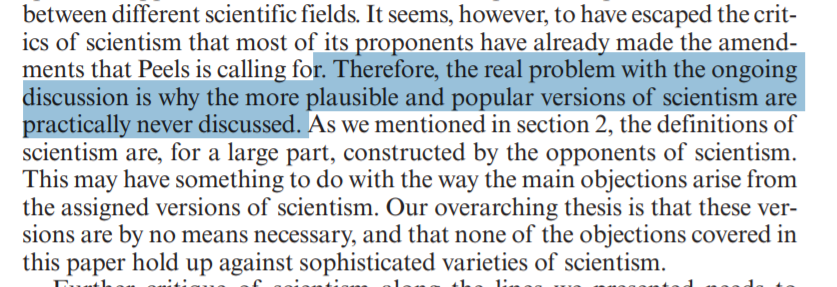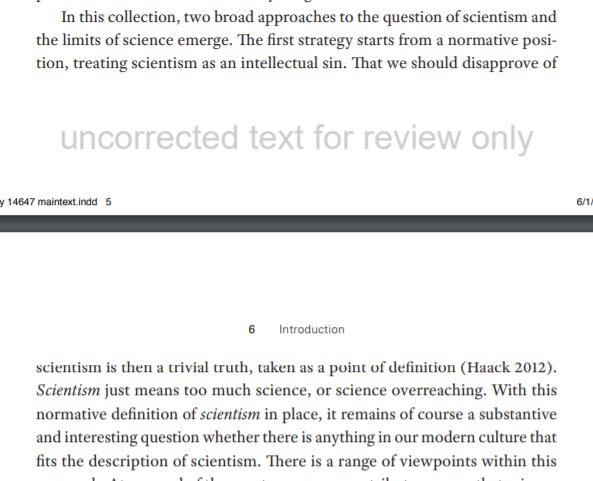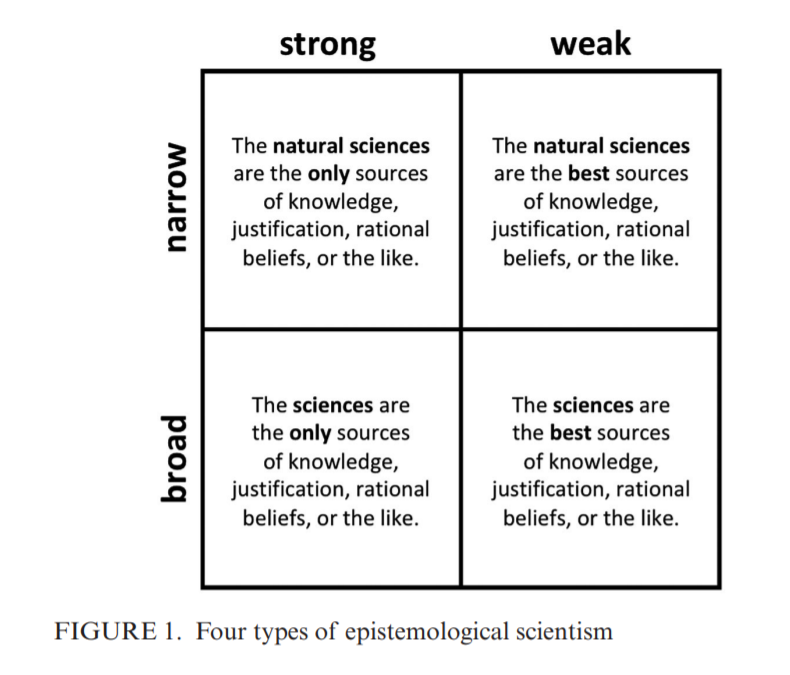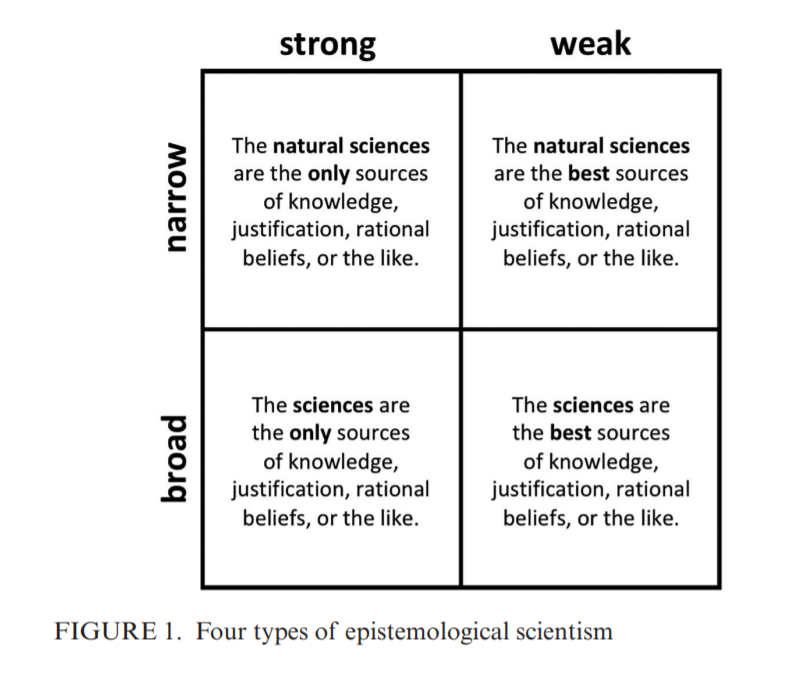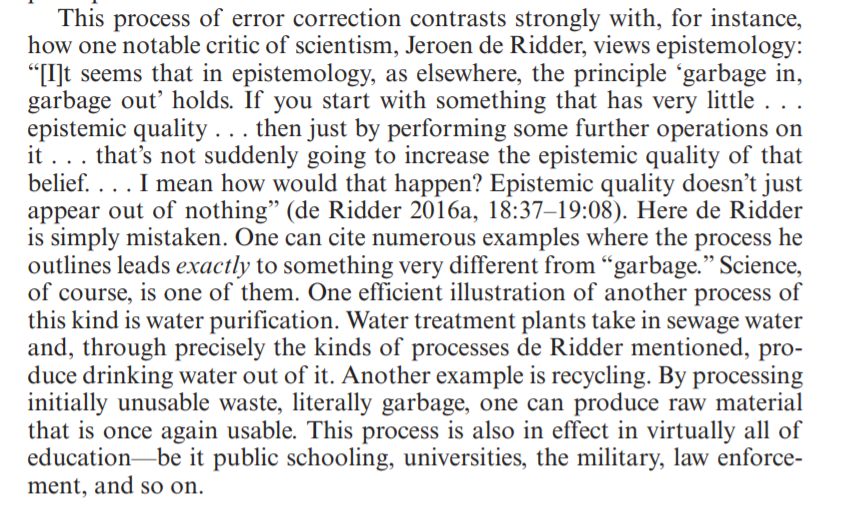Clever new paper defending (certain varieties of) scientism against the objection that it's self-defeating or is itself based on non-scientific sources. At the root of these misconceptions (I think) lies the 'foundationalist fallacy'. @RikPeels @mpigliucci https://onlinelibrary.wiley.com/doi/epdf/10.1111/meta.12443
What is "scientism"? It's mostly a bugbear defined by those who attack it, say these authors ( @HelsinkiCircle). This has led to uncharitable versions that are easy to knock down. But there are in fact interesting, non-trivial versions of "scientism" that are also defensible. /2
In our book, we distinguished two ways to define "scientism":
(a) As a term of abuse by definition. The question then becomes: what qualifies as "scientism"?
(b) As a neutral position about the scope & purview of science. The question then becomes: is it defensible or not? /2
(a) As a term of abuse by definition. The question then becomes: what qualifies as "scientism"?
(b) As a neutral position about the scope & purview of science. The question then becomes: is it defensible or not? /2
These authors follow the second approach: they present neutral definitions of "scientism" in its different flavors (represented by this quadrant) and then see which of those versions are defensible. /4 @HelsinkiCircle @mpigliucci
Barely anyone defends the strong/narrow version of scientism (upper left corner), except for Alex Rosenberg. And yet, this is the version most commonly attacked by critics ( @RikPeels and @ridderjeroen are discussed at length). /5
But the other versions of scientism easily escape the objections mentioned above. First, does science "presuppose" the existence of an external world, or lawful regularities, or naturalism? No it doesn't. These are merely hypotheses being tested as we go along. /6
Next, critics have attacked "scientism" by arguing that science still relies on non-scientific sources of knowledge, namely our human senses. Well yes, but that's trivial. This sensory knowledge is also being refined & corrected as we go along (here's what I wrote in our book)./7
The mistake is to think that science need to be "grounded" in some secure foundation, such as sense data. And that if this foundation is not completely secure, the whole edifice topples. But this metaphor is deeply wrong: knowledge is a web with many strands, not a building. /8
The authors nicely drive this point home by taking @ridderjeroen's "garbage in, garbage out" principle, which is steeped in foundationalist thinking, and turning it against him. Knowledge is not all-or-nothing, black-or-white! Neither in everyday life, nor in science. /10
My only worry is with their notion of "epistemic opportunism" in science. Yes, it's true that science takes on board any method that works. But this risks trivializing "scientism" (= the thesis that science is the only reliable form of knowledge). /11
If reading tea leaves really worked, I guess scientists would incorporate tea leaves in their toolkit. But that'd be a radical departure from science as we know it. It would be lame to then say: "Scientism is still correct because reading tea leaves is now part of science!"/12
For me, an essential part of scientism is the idea of continuity. Everyday forms of knowledge acquisition (e.g. plumbing) are not usually treated as "science", but they are CONTINUOUS with science. Scientism says: there are no "other ways of knowing", detached from science./13
Anyway, scientism schmientism, I'm gonna quit this philosophical rant now, before I lose ALL my followers. If you want to read more about this, you can find my own paper on the limits of science here: https://drive.google.com/file/d/1OU8eX-teoFBQeCm8FghZCnroETYkOSPJ/view /13
If you want to read more about this, you can find my own paper on the limits of science here: https://drive.google.com/file/d/1OU8eX-teoFBQeCm8FghZCnroETYkOSPJ/view /13
 If you want to read more about this, you can find my own paper on the limits of science here: https://drive.google.com/file/d/1OU8eX-teoFBQeCm8FghZCnroETYkOSPJ/view /13
If you want to read more about this, you can find my own paper on the limits of science here: https://drive.google.com/file/d/1OU8eX-teoFBQeCm8FghZCnroETYkOSPJ/view /13
@threader_app compile

 Read on Twitter
Read on Twitter